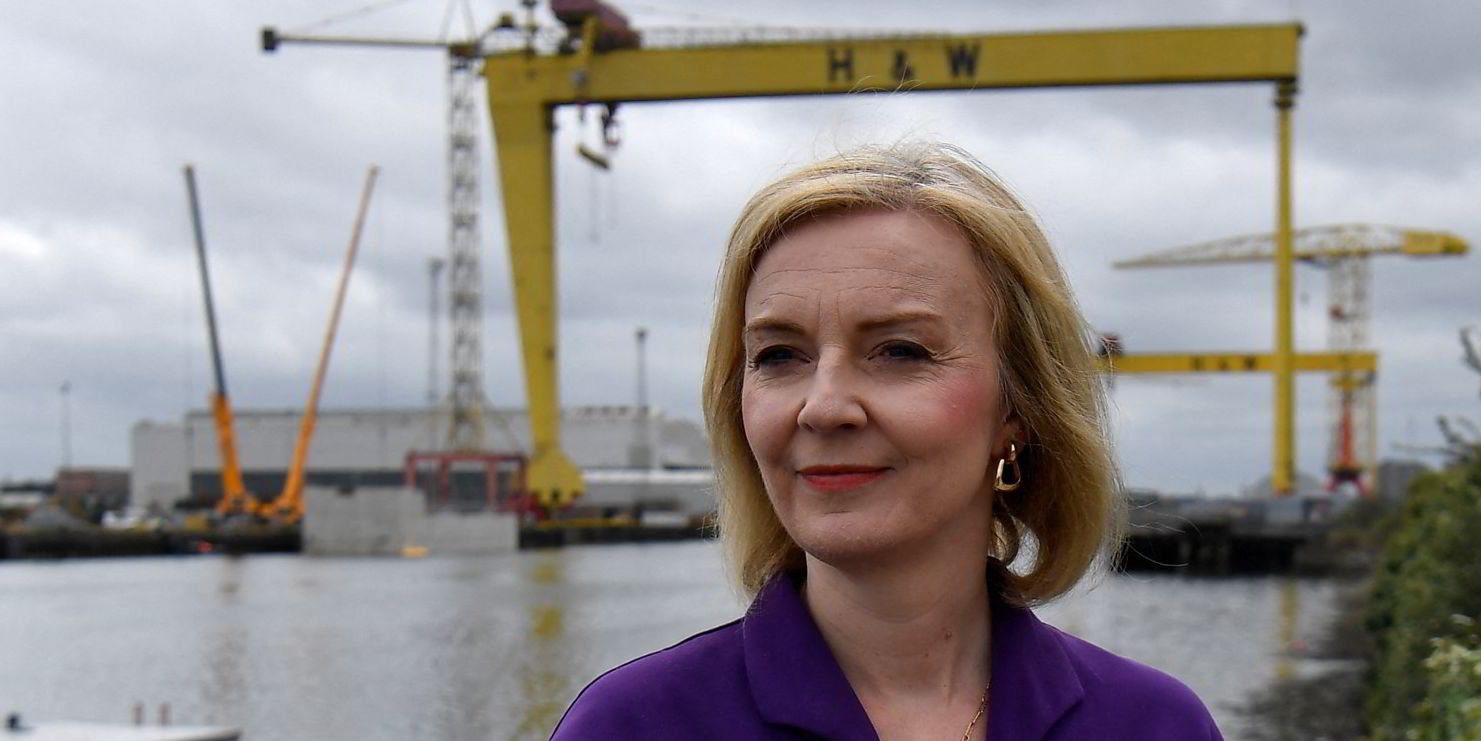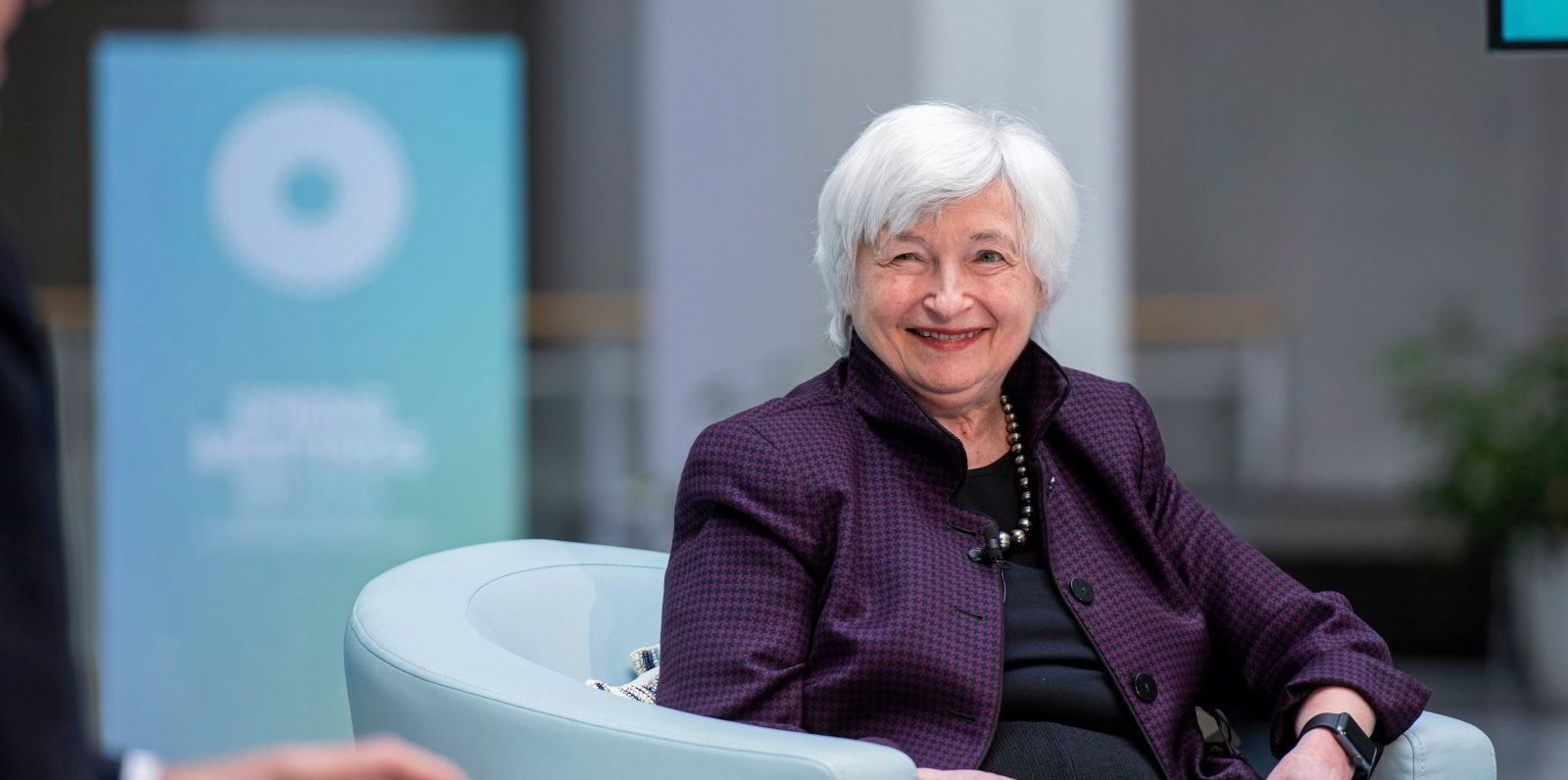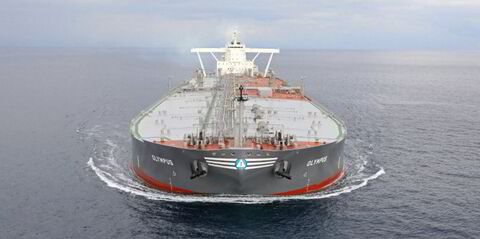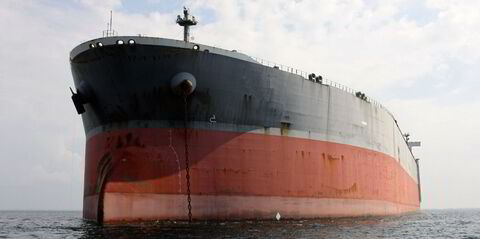The future of the British maritime industry may not top the agenda for Liz Truss, who took over as prime minister this week, but it will eventually move into view. A cost-of-living crisis, soaring power prices, staff shortages, strike action and crumbling public services will command more of her attention in the short term.
But this disciple of Margaret Thatcher has made clear that her overarching political and economic strategy will be built around tax cuts and accelerated growth.
As foreign secretary, Truss flew around the world trying to set up post-Brexit trade agreements and turn “global Britain” into more than a catchphrase.
It is here that shipping will point to the opportunities offered by an industry that has always been outward-looking — and usually very productive.
On the campaign trail, Truss talked about her desire to “turbo-charge” Britain’s freeport strategy and held talks at fast ferry builder Wight Shipyard.
She was photographed in front of Wight’s Union Flag doors and went to Belfast to meet maritime technology group Artemis to be snapped in front of the iconic Harland & Wolff shipyard cranes.
Ben Murray, chief executive of Maritime UK, thinks there is plenty to connect the new prime minister’s political strategy with the needs and aspirations of the shipping sector.
“Obviously there was a lot of focus post-Brexit on Britain as an island nation and the use of [seagoing] imagery, but behind the scenes, there have also been genuine policy changes and public investment that have been really helpful,” he said.
“Our hope is to build on that with the new prime minister and make her aware that our pro-growth, high productivity and levelling up agenda fits with hers.”
Murray said new research shows maritime jobs are 45% more productive and on average £9,000 ($10,400) per year better paid than those around them.
This comes in the context of 1.1m employed by UK maritime companies with a turnover of £116bn and a record of ploughing £600m per year into new private investment.
Maritime UK thinks Truss will also concentrate on creating changes to bolster even more high productivity areas such as the City of London, a centre of British shipping, and its wide services sector of insurers, lawyers and brokers.
Truss is expected to speed up the planning process around freeports such as Teesside in north-east England and other struggling coastal areas where growth has come from offshore wind and other maritime sectors.
Truss is also expected to speed up the planning process around freeports like Teesside and other struggling coastal areas where growth has come from offshore wind and other maritime sectors.
She has already said she will pursue more offshore oil and gas, a move that will put her into conflict with “direct action” climate campaigns such as Just Stop Oil.
It puts into question her commitment to a wider green agenda, which has led to public cash being directed towards the decarbonisation of shipping.
Truss has also signalled she could slap more restrictions on workers’ rights to strike, which may please some port and other employers but stoke up conflict with the trade union movement.
The Nautilus officers’ union said its priorities for Truss are to ensure there is no rerun of the P&O/DP World ferry dispute and an end to shipowners using “fire and rehire” strategies.
It is also pushing for seafarers to get a “just transition” to ensure they have the right skills for the low-carbon fuels of the future.
The last government increased financial support for wider training of seafarers from 30% to 50%, but Nautilus is pushing for 100% to come from the public purse.
Truss will also have to cope with the impact of Brexit choking up trade with the European Union and chasing away some shipowners from the Red Ensign despite an enhanced tonnage tax.
Truss was a Remainer who became a Brexiteer, a Liberal Democrat who became a Conservative and a republican who we presume is now a monarchist.
She has a reputation for being a free market ideologue and has been disparaging about British workers, but this right-wing daughter of a left-wing academic can clearly change her mind. When she has time to concentrate, maritime companies should benefit; the workforce probably less so.





